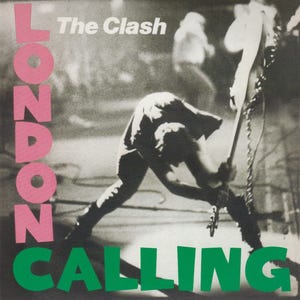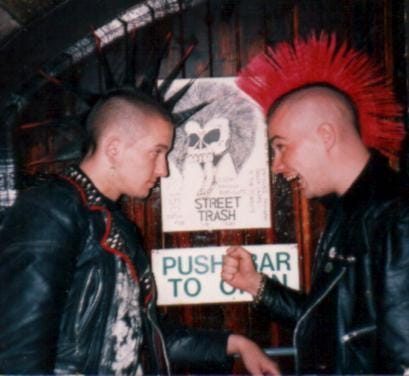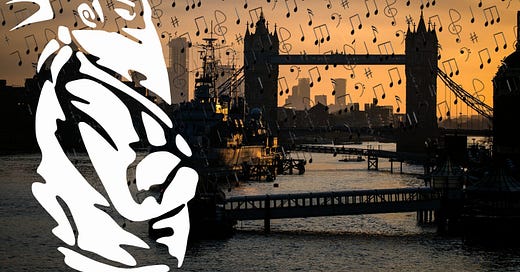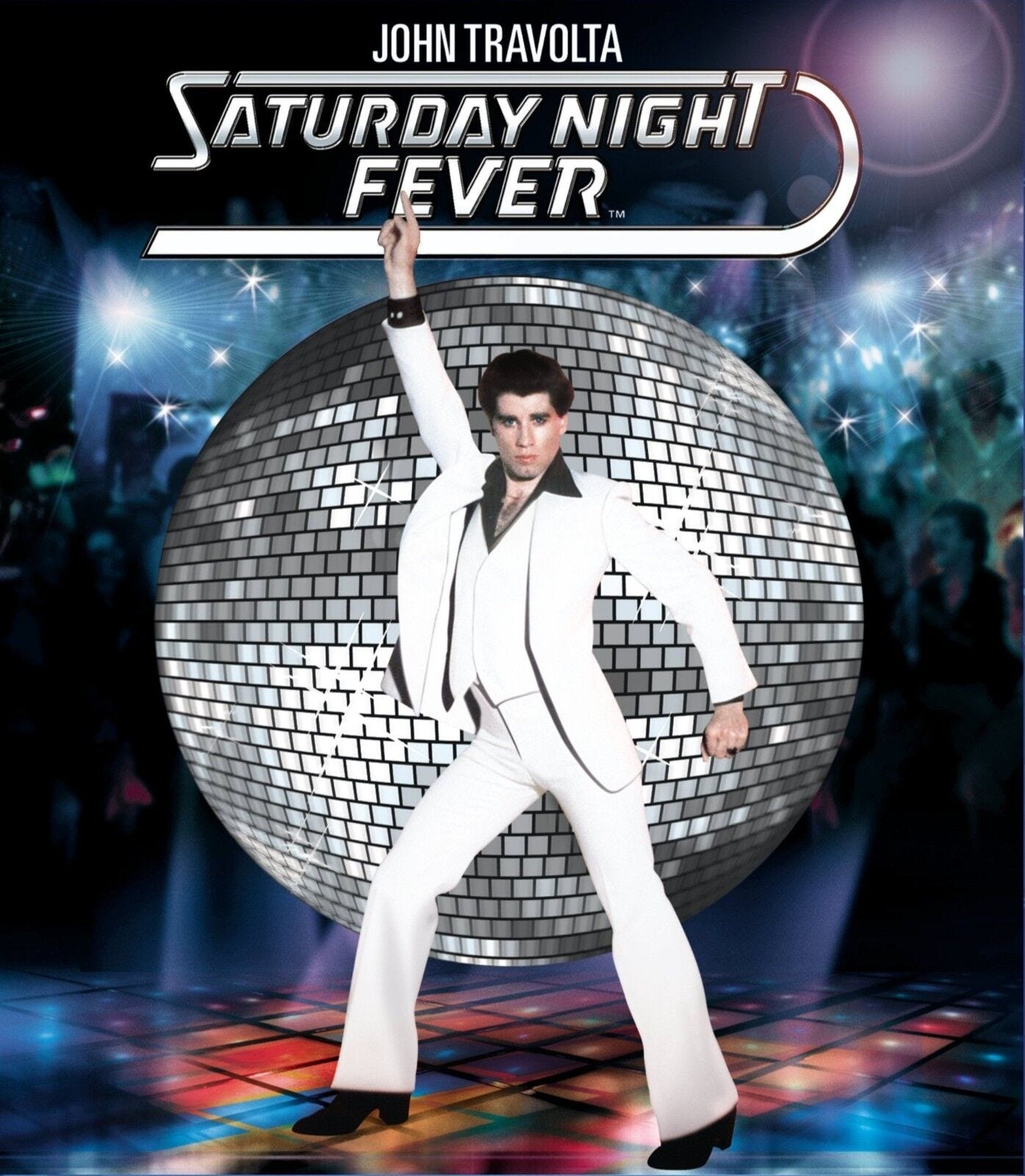London Calling: An Apocalyptic Anthem That Deserves a Call Back
Time for another round of defiance and rebellion by disillusioned youth (and adults)
In one decade, rock ‘n’ roll music morphed from psychedelic drug-infused sonic orgies to angst-ridden anger fests.
In between, rock exploded, like July 4th fireworks, in regional arenas from the Southern belt to the California surf. In the middle years, disco music, emanating from urban dance subculture, dominated the airwaves.
It was the 1970s. I was a teenager. It was a glorious time to absorb everything from hippie music to dance funk to punk rock counterculture.
By 1978, the disco scene wore out its hypnotic beat welcome. We wanted to rock free again, not execute syncopated moves at the discotheque.
Two things kicked disco music off the charts.
First, The Police arrived to arrest the further development of the disco invasion. The song Roxanne became our siren call to get our rock groove back.
Second, British punk rock landed on the American music landscape and demolished anything playing in its mainstream path. At the end of the 1970s, The Clash and the Sex Pistols ruled the rock world with their anti-establishment rants and raves.
Rural America didn’t fully understand the mosh pit collision dynamic, but we all related to the high energy, anger-fueled vibe crashing the music scene.
The Invasion of Disco Mania
In the post-Vietnam years, mainstream music relaxed back into its smooth grooves and dance moves. We were all war weary and just out to have a good time.
To give you a flavor of standout songs in the mid-1970s, try out these following artists:
Dancing Queen - ABBA
I Love the Nightlife - Alicia Bridges
Brick House - The Commodores
Ladies Night - Kool & the Gang
Y.M.C.A - Village People
Disco Inferno - The Trammps
Daddy Cool - Boney M
Hot Stuff - Donna Summer
Disco music was relentless in its promotion and presence on the radio and in the nightclubs. If you went out to a bar to strike up conversation with the ladies, you’d better know some damn disco moves.
All the hotshot guys were dressed to kill with their fancy footwork and flashy shirts. The regular muscle-bound and denim-clad types took a backseat to these slick Saturday Night Fever impersonators.
I was a wallflower during the disco years. No rehearsed dance skills, no chance.
A Change of Pace and Attitude
Puck rock was a movement, not just a musical departure.
From its origins in the United Kingdom, where punk flourished early, the scene took off in the United States around 1978. In contrast to the elegant sounds of disco, punk rock hammered out bursts of hard-edged melodies played with raw emotions.
No dance moves were required in the mosh pit. It was all organic, original and angst-ridden.
Punk rock was a disruptive force. It was against everything.
While disco was a commercial bonanza, punk rock set the anti-establishment tone by rejecting conformity in favor of self-expression. Traditional gatekeepers were bypassed in order to embrace artistic control and creative freedom.
Punk bands were not afraid to address political and social issues. As a counterculture phenomenon, the movement raised awareness on inequality, class struggles and corruption.
Even fashion played a role. Spiked hair and unruly behavior challenged societal norms and gained attention for this outcast community. Punk was all about shock value and pushing boundaries from rough language to mohawk hairstyles.



No More Dance Party, Back to Chaos
When The Clash released London Calling in late 1979, it was a clarion call that the disco dance party was nearly over. Of course, the genre lingered in the early 1980s with hits like Funkytown.
As the title track to the album, London Calling harkens back to World War II. When war threatened lives and survival was unsure, the BBC World Service became a beacon of hope.
The radio station identified itself by broadcasting “This is London calling …” to those in occupied countries. It not only delivered news of the war, it became a voice of reassurance.
For London Calling, the song, it was a different warfront. Here are the lyrics for the chorus:
The ice age is coming, the sun's zoomin' in Meltdown expected, the wheat is growin' thin Engines stop running, but I have no fear' Cause London is drownin', and I live by the river
Ecological disaster burned on the minds of the young lads. The Three Mile Island nuclear plant, in Pennsylvania, had a reactor core melt down. Radioactive gases leaked out into the atmosphere and caused concern over contaminated crops.
The oil embargoes and shortages of 1974 slowed down the engines of modern life. And the Soviet Union invaded Afghanistan to spark the fear of revived Cold War nuclear annihilation.
In Great Britain, the rise in unemployment, racial tension and economic implosion fueled the frustration of an entire generation.
All of this global turmoil set in motion thoughts of doom akin to the Second World War.
Even at the end of London Calling, listen to the tapping of the SOS emergency distress code going out over the airwaves.
Coda
Disruptors, whether in music, economics or technology, are critical for change and/or progress.
Since the horrific 9/11attacks on American soil in 2001, the last two decades are defined by constant warmongering conflicts, an Internet revolution and a global pandemic.
It’s been a rough ride for Gen Z to grow up with the burden of technological intrusion, Boomer intransigence and a world falling apart at its democratic seams.
The younger generations are starving for authenticity and meaning in an authoritarian dystopia.
Even the creative vision of artists is overridden by Auto-Tune and grid-tracking tools to keep a perfect pitch or beat. This is a recipe for formulaic blandness, not a soulful rendering of the times.
Many people are starting to question the madness of the manipulators. It is time for another dose of rage and fury to fuel the next generation into positions of power.
It is time for a recall. “This is London calling …”
Please answer.
===================
If you like the songs and/or essays, please help me distribute them by sharing and following me on Twitter/X, Substack and now YouTube.
I appreciate your time and support in this endeavor.





